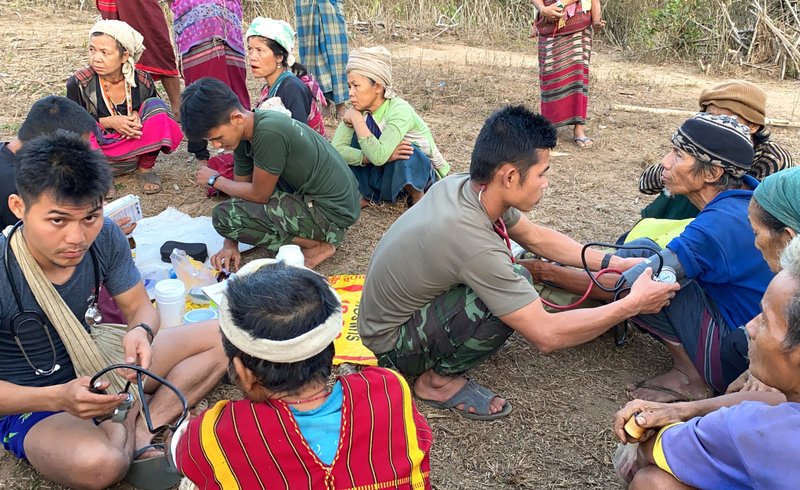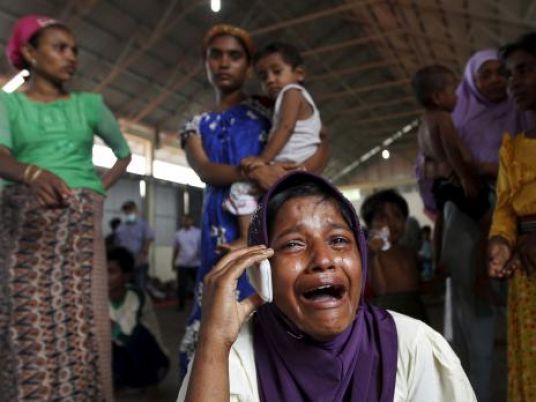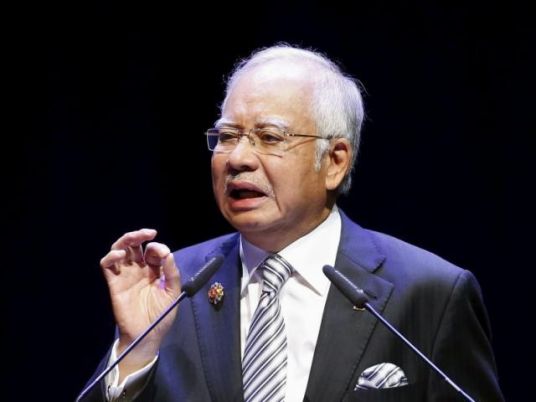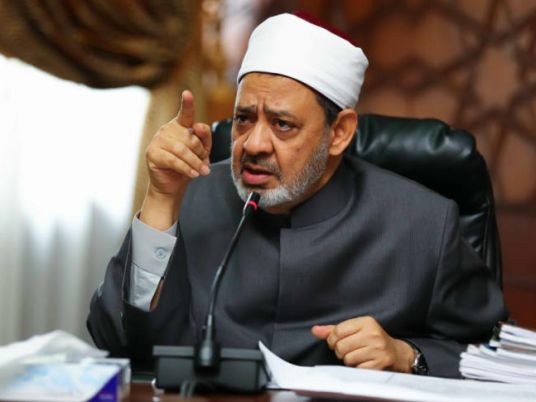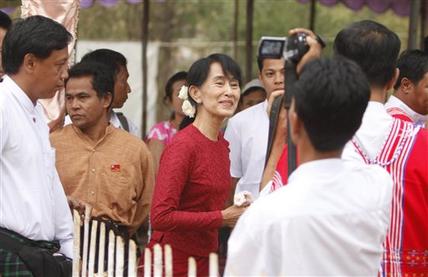
YANGON, Myanmar — She struggled for a free Myanmar for a quarter-century, much of it spent locked away under house arrest. Now, the Nobel Peace Prize laureate whose nonviolent campaign for democracy at home transformed her into a global icon is on the verge of ascending to public office for the first time.
Aung San Suu Kyi, 66, was elected to parliament Sunday in a historic victory buffeted by the jubilant cheers of supporters who hope her triumph will mark a major turning point in a nation still emerging from a ruthless era of military rule.
If confirmed, the election win will also mark an astonishing reversal of fortune for a woman who became one of the world's most prominent prisoners of conscience. When she was finally released in late 2010, just after a vote her party boycotted that was deemed neither free nor fair, few could have imagined she would make the leap from democracy advocate to elected official in less than 17 months, opening the way for a potential presidential run in 2015.
But Myanmar has changed dramatically over that time. The junta finally ceded power last year, and although many of its leaders merely swapped their military uniforms for civilian suits, they went on to stun even their staunchest critics by releasing political prisoners, signing cease-fires with rebels, relaxing press censorship and opening a direct dialogue with Suu Kyi — whom they tried to silence for decades.
Results continued to trickle in early Monday from poll watchers within Suu Kyi's party, and spokesman Han Than said the opposition had won at least 43 of the 44 parliament seats it had contested. Those included four in the capital, Naypyitaw, considered a stronghold of the ruling party, whose leaders helped build the city.
The party's foray into electoral politics was its first since 1990 — when it won a landslide that was promptly annulled by the army.
"It's the people's victory! We've taught them a lesson!" a shopkeeper who goes by the single name Thien said late Sunday, when it became clear the opposition was going to sweep the poll. He was among thousands watching outside the party's crumbling headquarters as a digital signboard repeatedly flashed news that Suu Kyi had won the Kawhmu constituency south of Yangon.
The crowds swelled as night fell, blocking traffic on the road. Some chanted "We won! We won!" Others clapped, danced, waved party flags and held their fingers aloft in V-for-victory signs. One official party message even told them not to gloat.
The results must be confirmed by the government's electoral commission, however, which has yet to release any outcome and may not make an official declaration for days.
U.S. Secretary of State Hillary Rodham Clinton congratulated Myanmar for holding the poll. Speaking at a news conference in Istanbul, Turkey, she said Washington was committed to supporting the Southeast Asian nation's reform effort.
"Even the most repressive regimes can reform, and even the most closed societies can open," she said.
The top-down revolution has left Myanmar befuddled and wondering how it happened — or at least, why now? One theory says the military-backed regime had long been desperate for legitimacy and a lifting of Western sanctions, and its leadership had quietly recognized that their impoverished country, formerly known as Burma, had fallen far behind the rest of skyscraper-rich Asia.
Sunday's by-election was called to fill 45 vacant seats in Myanmar's 664-member bicameral assembly, and the military-backed government had little to lose by holding it. The last vote had already been engineered in their favor — the army was allotted 25 percent of the seats, and the ruling party won most of the rest.
Despite fears that Suu Kyi risks legitimizing a regime she has opposed for decades, her backers see the poll as a chance to take advantage of a government-orchestrated political opening that could eventually spawn real democracy.
Suu Kyi herself said Friday that campaigning had been marred by so many irregularities that it could not be considered fair — allegations her party reiterated Sunday.
Malgorzata Wasilewska, head of the European Union's observer team, called the voting process "convincing enough" but stopped short of declaring it credible yet. "In the polling stations that I visited … I saw plenty of good practice and good will which is very important," she said.
U.S. Rep. Joseph Crowley, who spearheaded legislation that tightened sanctions in 2008, praised Suu Kyi and the opposition for taking part in the vote, but said more needed to be done.
"Now is not the time for the international community to rush toward lifting pressure on Burma," said Crowley, who in January became the first House member to visit Myanmar in 12 years. "Far too many political prisoners are still locked behind bars, violence continues against ethnic minorities and the military dominates not only the composition but the structure of the government."
Despite the polling problems, Suu Kyi had no regrets and stayed in the race anyway.
"She's fully aware of the risks, even of the possibility that the Burmese government is attempting to co-opt her," said Sean Turnell, a Myanmar expert at Macquarie University in Sydney, Australia. But "I think she sees an opportunity, and is pushing hard to make it real."
At the very least, her candidacy has galvanized Myanmar's downtrodden masses, giving hope where only the smallest slivers existed before.
Party executive Soe Win said Suu Kyi had won in 128 of the 129 voting stations in Kawhmu, the constituency south of Yangon that she contested. He said the party had received reports of irregularities in the sole holdout.
"She may not be able to do anything at this stage," said Go Khehtay, who cast his ballot for Suu Kyi at Wah Thin Kha, one of the dirt-poor villages in the rural constituency that she is vying to represent. "But one day, I believe she'll be able to bring real change."
David Scott Mathieson, an expert on Myanmar for Human Rights Watch, said "the real danger of the by-elections is the overblown expectations many in the West have cast on them."
"The hard work really does start afterward," he said. "Constitutional reform, legal reform, tackling systemic corruption, sustainable economic development, continued human rights challenges … will take many years."
One look at the village Suu Kyi awoke in Sunday — where some voters walked barefoot into a schoolhouse-turned-polling station — illustrates the long road ahead.
With no running water, women in Wah Thin Kha draw water from wells with plastic buckets attached to bamboo sticks. With no electricity, her supporters rigged up an electrical grid fueled by groaning generators to light her arrival. There is no Internet, and aside from radios and cellphones, most everyone is cut off from the modern world.
Residents said the ruling party recently began building a narrow concrete pathway through the village in an apparent last-ditch attempt to win votes. But the concrete has already begun to crack, and few appeared impressed.
"The government built a clinic here a long time ago, but we've never seen a doctor inside it," said Nini Aung, a Suu Kyi supporter whose cheeks were smeared with a decorative cream-colored paste made from ground tree bark.
"We need hospitals and clinics. We need change in months, not years," she said. "The junta never did much here. We have relied on ourselves, as if we were on our own."
Sawhkin Zaw, another voter in Wah Thin Kha, said he didn't expect anything to change soon. But he cast his ballot for her because "she's sacrificed a lot to get to this point. We need to give a little back."

